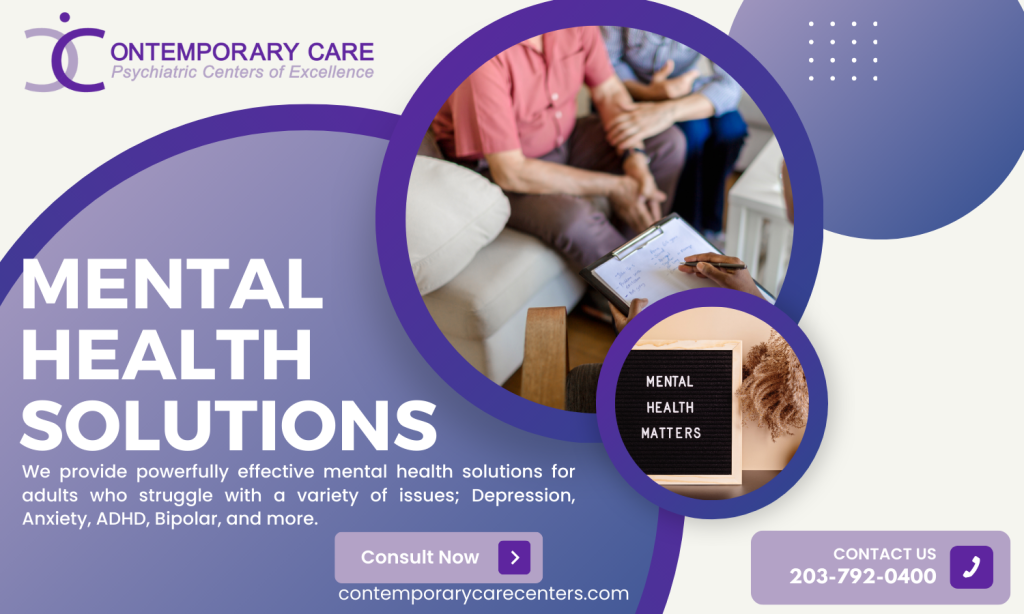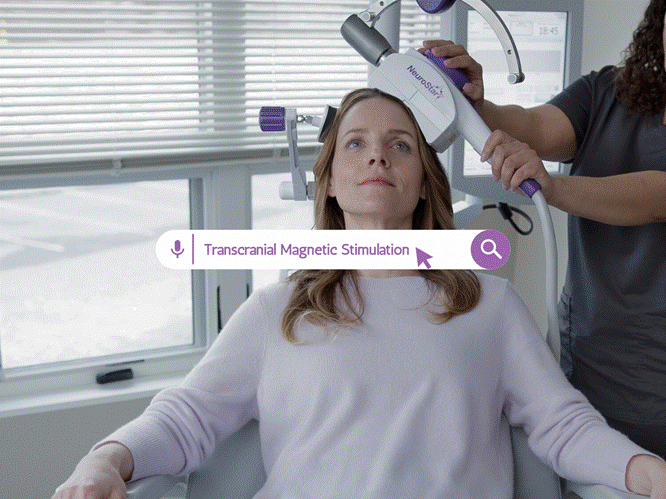Depression hurts, and sometimes getting out of it seems almost impossible.
But the last few decades have seen an explosion in new knowledge about emotions, neurological conditions, and brain chemistry.
Scientists are now familiar with the changes in your brain (or symptoms of mental health conditions) that accompany depression and anxiety. Some are even on the brink of a revolution.
Luckily, we now have several decades of research on an FDA-approved, non-invasive treatment option known as transcranial magnetic stimulation (TMS).
If you tried medications and had unsuccessful mental health treatments or if you found it hard to get the best TMS therapy near me, this post is for you.
It discusses how and why TMS is so promising for individuals with symptoms of chronic depression and anxiety.
What is Transcranial Magnetic Stimulation (TMS) and How It Works?
TMS is perhaps the most popular of the new therapies to treat people with depression. Although it sounds like something out of a sci-fi movie, this treatment option is a promising therapy for depression.
A Brief History of TMS Treatment
The FDA approved it in 2008 for adults with treatment-resistant depression and in 2018 for treating symptoms of obsessive compulsive disorders. TMS treatments are also effective for ADHD, anxiety, and post-traumatic stress disorder (PTSD).
The Best Part?
This non-invasive therapy does not require sedation or anesthesia. It means you will not feel pain when you get it and resume your usual activities.
TMS uses short pulses of magnetic fields to stimulate cells in specific regions and reach deep into your brain. It targets the brain area that regulates your mood. You may feel a tapping sensation during it.
Think of it like a shower head placed next to your head. But it delivers magnetic pulses instead of water.
These magnetic pulses pass through your brain, changing the patterns of electrical firing between cells in targeted areas, which, in turn, reduces depression and anxiety in each TMS session.
What’s the Duration of the Deep TMS Treatment?
The duration of each TMS session varies based on you and your therapist needs. The process usually includes daily 30 to 60 minutes for between one and ten weeks of therapies. But keep in mind that four to six weeks are typical for many patients.
It’s incredible to see the results that TMS treatment has had on the mood of people with depression, but it all depends on how you want to improve your mental health.
Achieving Mental Health with Deep TMS Therapy
If you keep trying to overcome depression and are actively seeking mental health solutions, chances are high that you will succeed. But why stop there when you can defeat depression?
Remember: Experiencing a relapse is not a catastrophe. It doesn’t mean that you have failed.
Depression is a formidable foe, but the right TMS treatment can help you alleviate symptoms of mental health conditions.
Research shows that TMS is an effective treatment for the majority of depression relapses. As opposed to medication, it is generally a mild treatment with no long-term side effects.
What to Do When You Experience a Relapse?
If you experience a relapse because of medications, the first step is to seek “TMS therapy near me” or a TMS specialist. Why?
Self-help and medications do not work anymore, especially when you are dealing with recurrent depression. So it is crucial to consult with a TMS specialist.
If you haven’t seen a therapist earlier, make your first appointment online today.
What If You Have Already Received Therapy?
Do not assume that help from a TMS specialist is useless if you’ve already received treatments.
If it worked for you, it is likely to be helpful again. But if it didn’t, consider seeking treatment from a different therapist.
Is TMS Effective for People with Treatment-Resistant Depression?
Did you know that TMS has been very effective for individuals who have reached a dead-end with medication?
In fact, after an average of 28 sessions, most patients report relief and experience a significant decrease in depression symptoms.
This real-world evidence adds to the already compelling research on TMS for patients with treatment-resistant depression.
What’s more? TMS therapy works just as well in real-world settings, as it does in rigorous clinical research trials – there’s no efficacy-effectiveness gap to worry about.
Possible Side Effects of Transcranial Magnetic Stimulation Therapy
TMS is a relatively painless and safe procedure. But most common side effects are headaches, dizziness, scalp discomfort, and tingling of facial muscles.
Don’t worry, patients remain alert throughout the entire procedure.
So Am I Still Eligible for It?
Yes, but you can’t have TMS treatments if you have a pacemaker or any other metal implanted in your body.
Because the side effects are rare, most medical practitioners consider TMS a safe procedure.
Now we have an idea of how TMS treatment works and what are the possible side effects of it. Let’s jump straight to find out the best TMS therapy near me.
Finding the Best TMS Therapy Near Me
If you’re considering TMS treatment, you must find TMS therapy near me. You also need the help of a TMS specialist because it requires TMS clinic visits.
Luckily, there are plenty of therapists in Connecticut who can provide this service.
Google “TMS Therapy Near Me”
A quick search for “TMS therapy near me” on Google should bring up several options for you.
Remember, the cost and number of sessions needed for TMS can vary depending on the therapist. To help you decide which therapist would be the best fit, we recommend reaching out to them and setting up a meeting.
Get in Touch With the “Best TMS Therapy Near Me”

If your search for TMS therapy near me did not work, look no further than Contemporary Care Centers (CCC) in Connecticut.
Why CCC?
Well, you can’t find our world-renowned medical director Dr. Tarique Perera anywhere else.
Dr. Perera specializes in adult psychiatry and has spent years in performing successful TMS treatments. He is a leader in the field, and there is no match for him.
Dr. Perera’s innovative approaches have set him apart from the rest.
We Have Three Care Centers
We pride ourselves on having three centers in Connecticut, New York City, and Manhasset, Long Island, where we have already performed over 5,000 successful TMS treatments for depression, anxiety, and obsessive compulsive disorder.
We Have Made It Accessible to All
But that’s not all – we are the only TMS specialist that accepts insurance. It means you don’t have to worry about the cost of treatment if you have insurance.
Don’t wait any longer! Make an appointment today.



